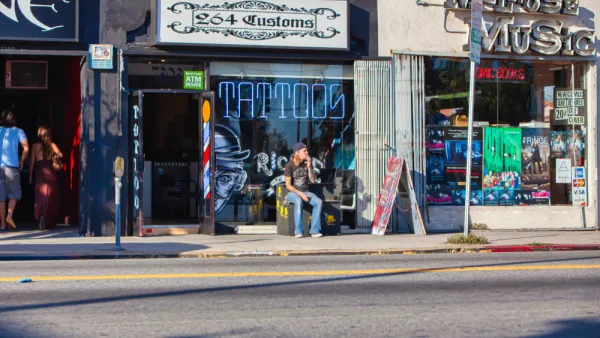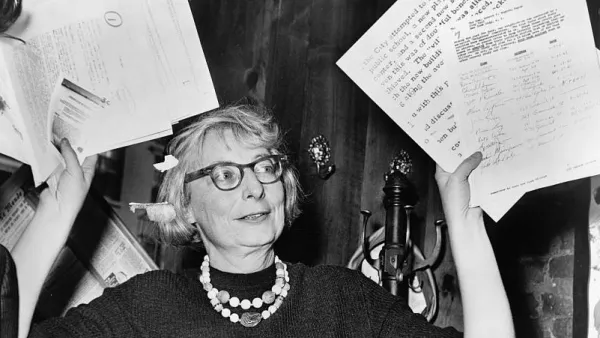If Jane Jacobs's theory that face-to-face encounters make for better cities is correct, a new metric that measures the ability of a city to encourage random social interactions could prove essential in shaping urban policy.
"In a pair of recent papers, Steven Farber, an assistant professor of geography at the University of Utah, and his collaborators have proposed a new metric to measure the latent possibilities for community in cities without proximity: 'social interaction potential,' ” reports Greg Lindsay. "SIP represents the intersecting slivers of space-time in which any random pair of a city’s residents can meet based on where they live, where they work, and, given those, how long they have to rendezvous."
"The usefulness of the metric depends on linking face-to-face encounters with higher quality of life and economic growth--which, given the rich body of literature on the subject from Jane Jacobs’s The Economy of Cities onward, seems likely."
FULL STORY: The Best Cities Are Ones Where You Can Make Friends

National Parks Layoffs Will Cause Communities to Lose Billions
Thousands of essential park workers were laid off this week, just before the busy spring break season.

Retro-silient?: America’s First “Eco-burb,” The Woodlands Turns 50
A master-planned community north of Houston offers lessons on green infrastructure and resilient design, but falls short of its founder’s lofty affordability and walkability goals.

Delivering for America Plan Will Downgrade Mail Service in at Least 49.5 Percent of Zip Codes
Republican and Democrat lawmakers criticize the plan for its disproportionate negative impact on rural communities.

Test News Post 1
This is a summary

Test News Headline 46
Test for the image on the front page.

Balancing Bombs and Butterflies: How the National Guard Protects a Rare Species
The National Guard at Fort Indiantown Gap uses GIS technology and land management strategies to balance military training with conservation efforts, ensuring the survival of the rare eastern regal fritillary butterfly.
Urban Design for Planners 1: Software Tools
This six-course series explores essential urban design concepts using open source software and equips planners with the tools they need to participate fully in the urban design process.
Planning for Universal Design
Learn the tools for implementing Universal Design in planning regulations.
EMC Planning Group, Inc.
Planetizen
Planetizen
Mpact (formerly Rail~Volution)
Great Falls Development Authority, Inc.
HUDs Office of Policy Development and Research
NYU Wagner Graduate School of Public Service





























